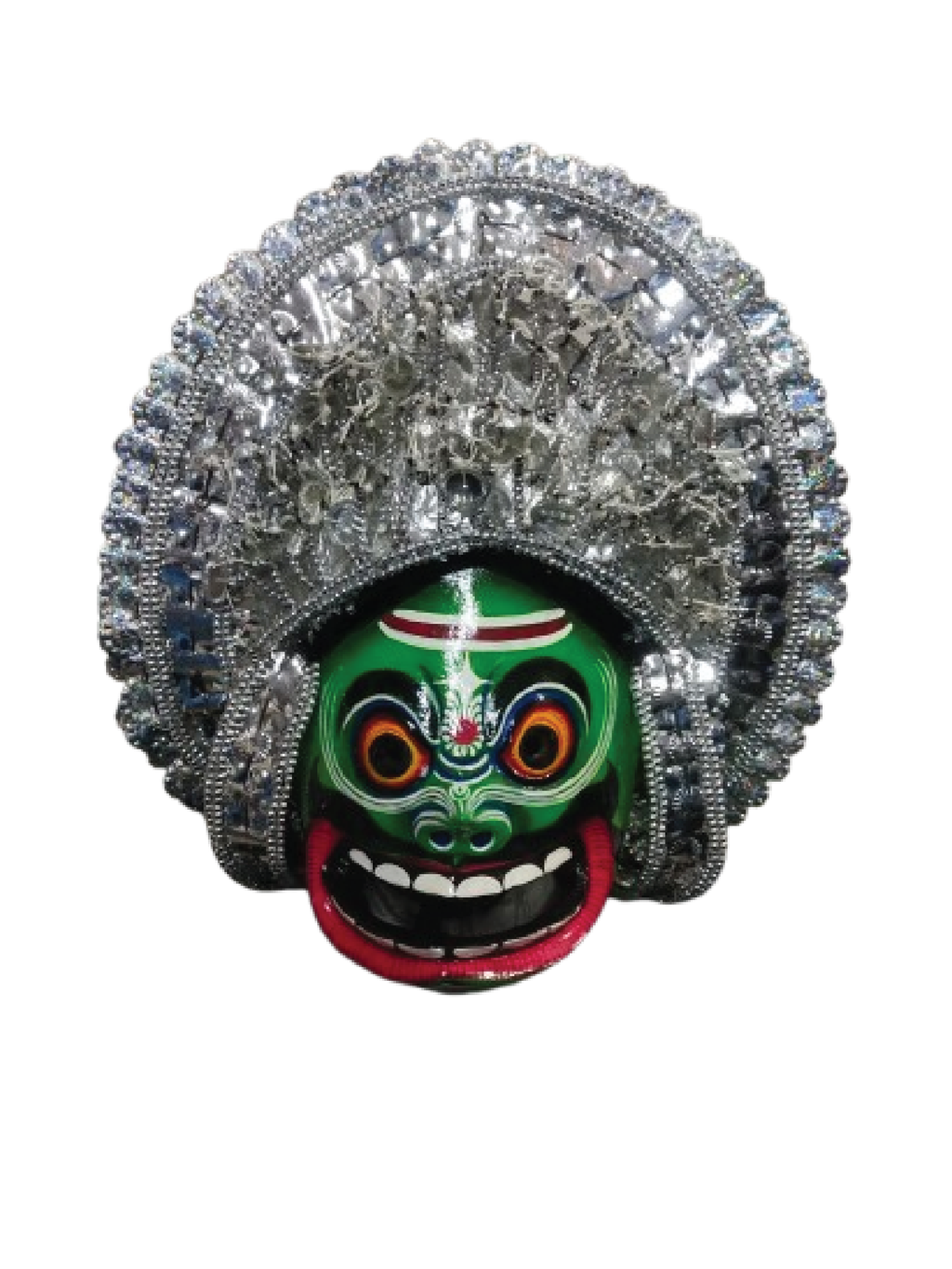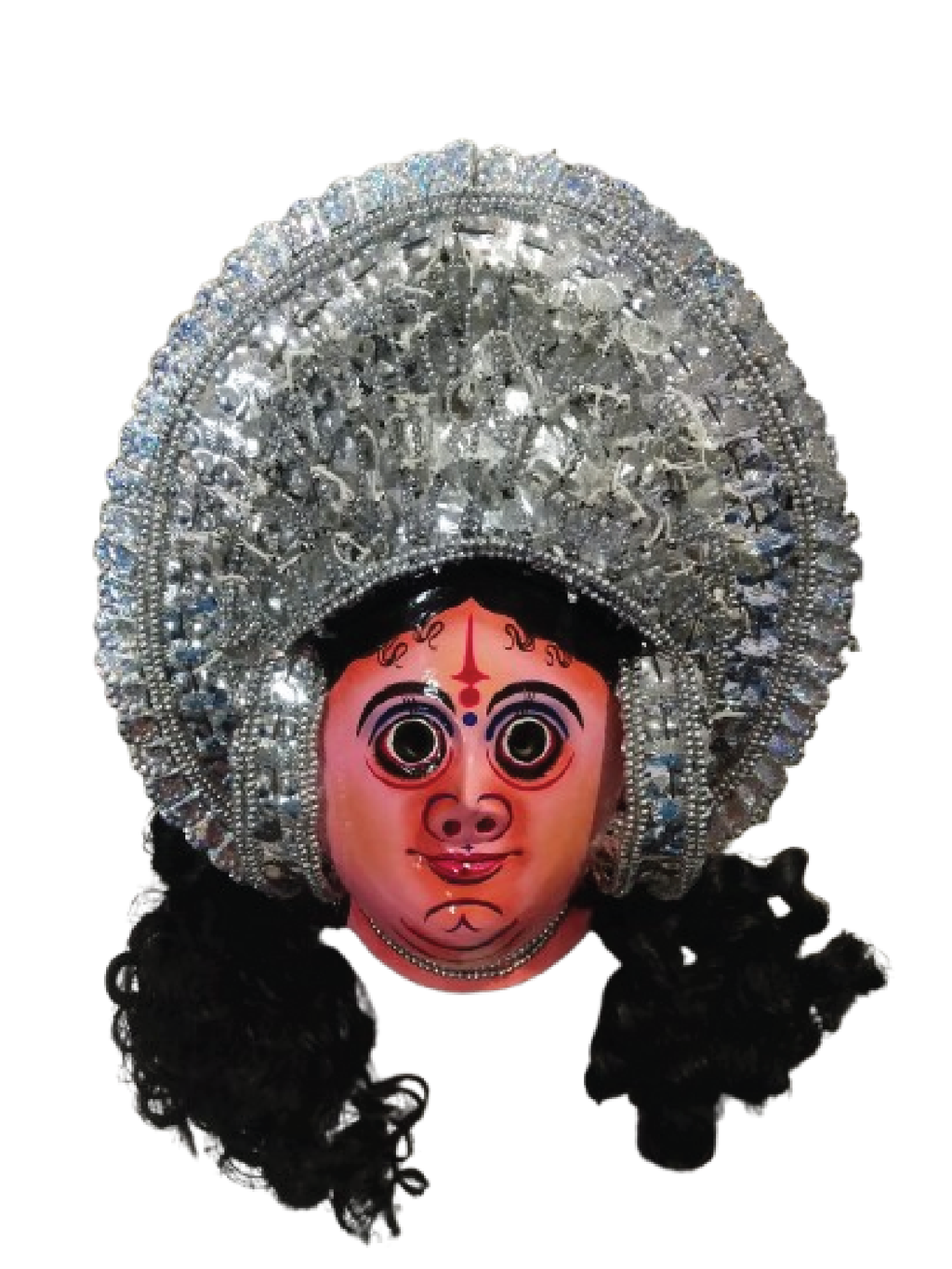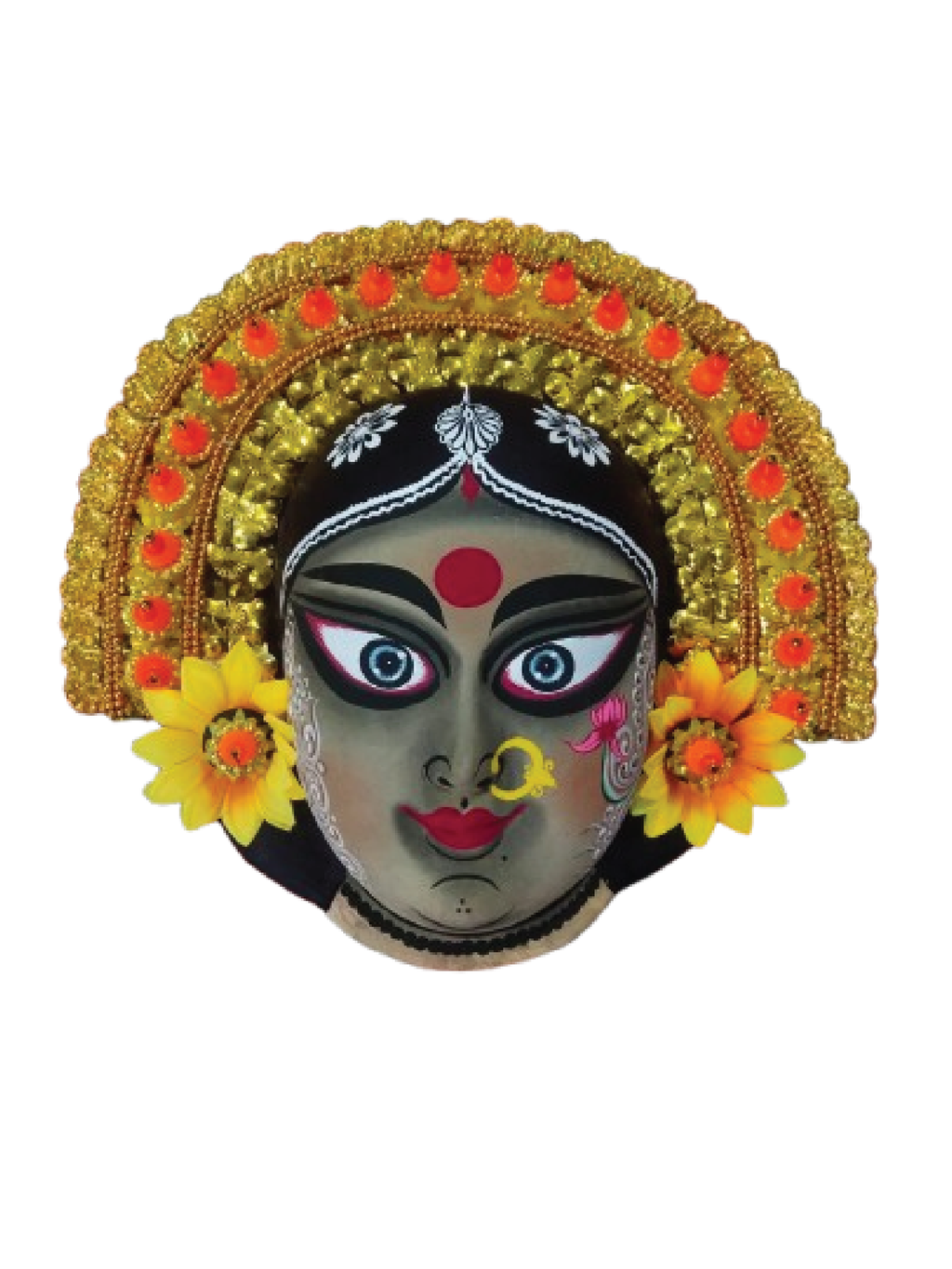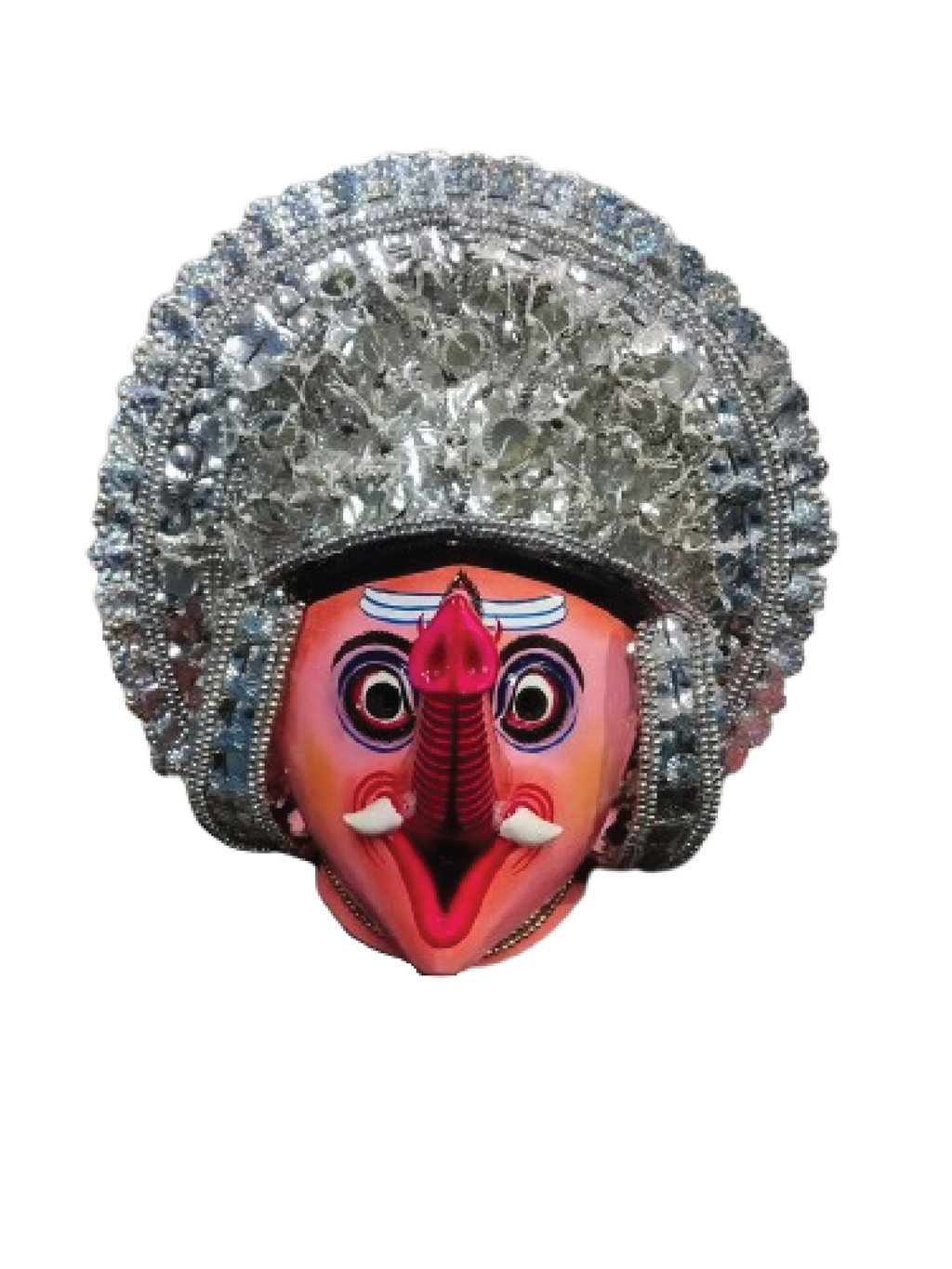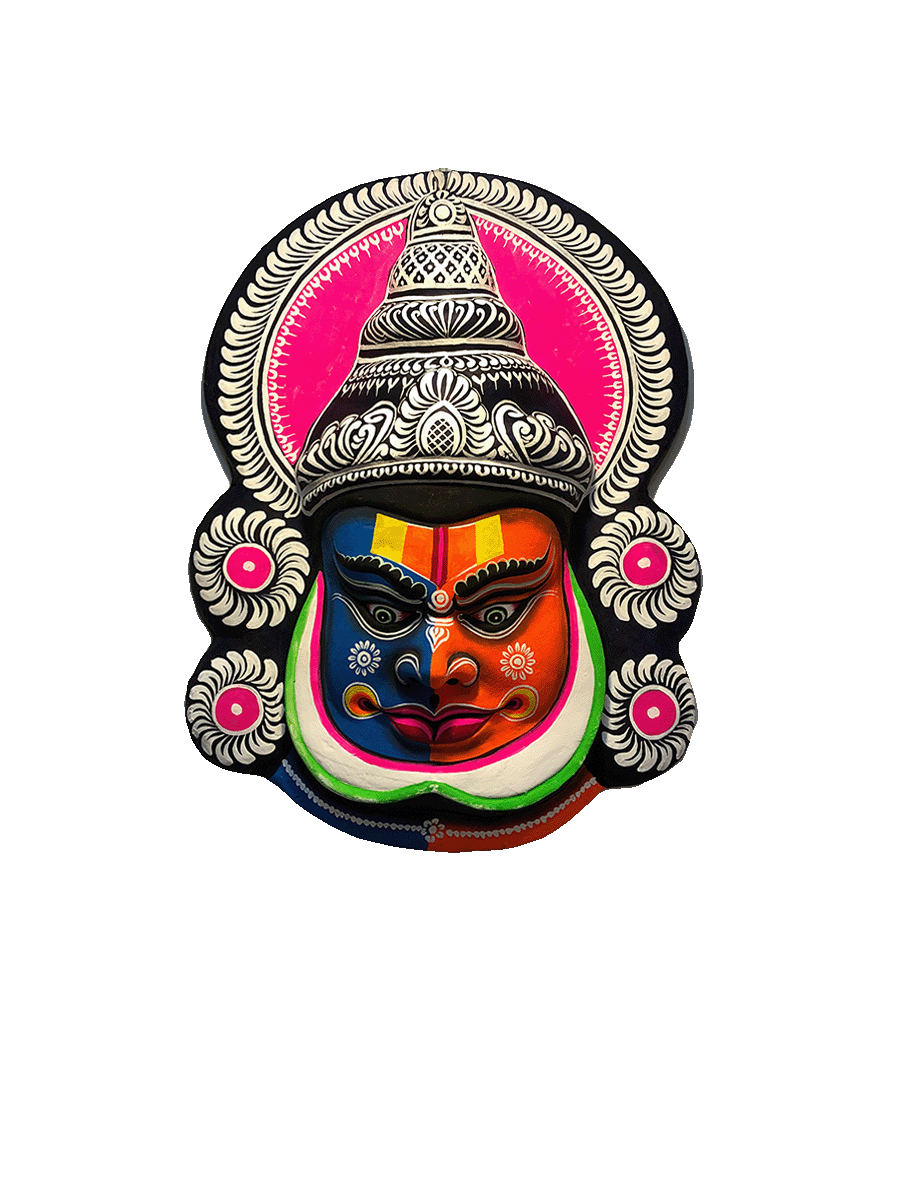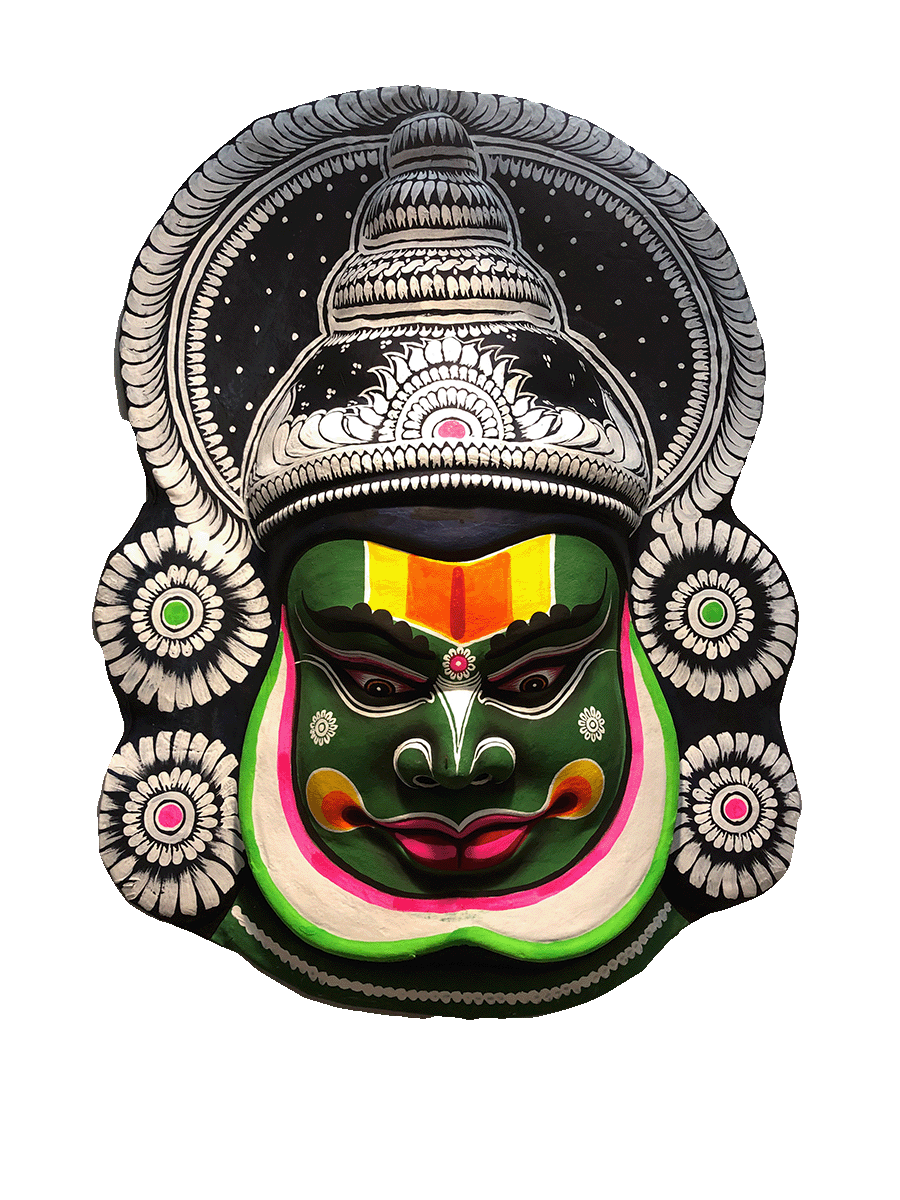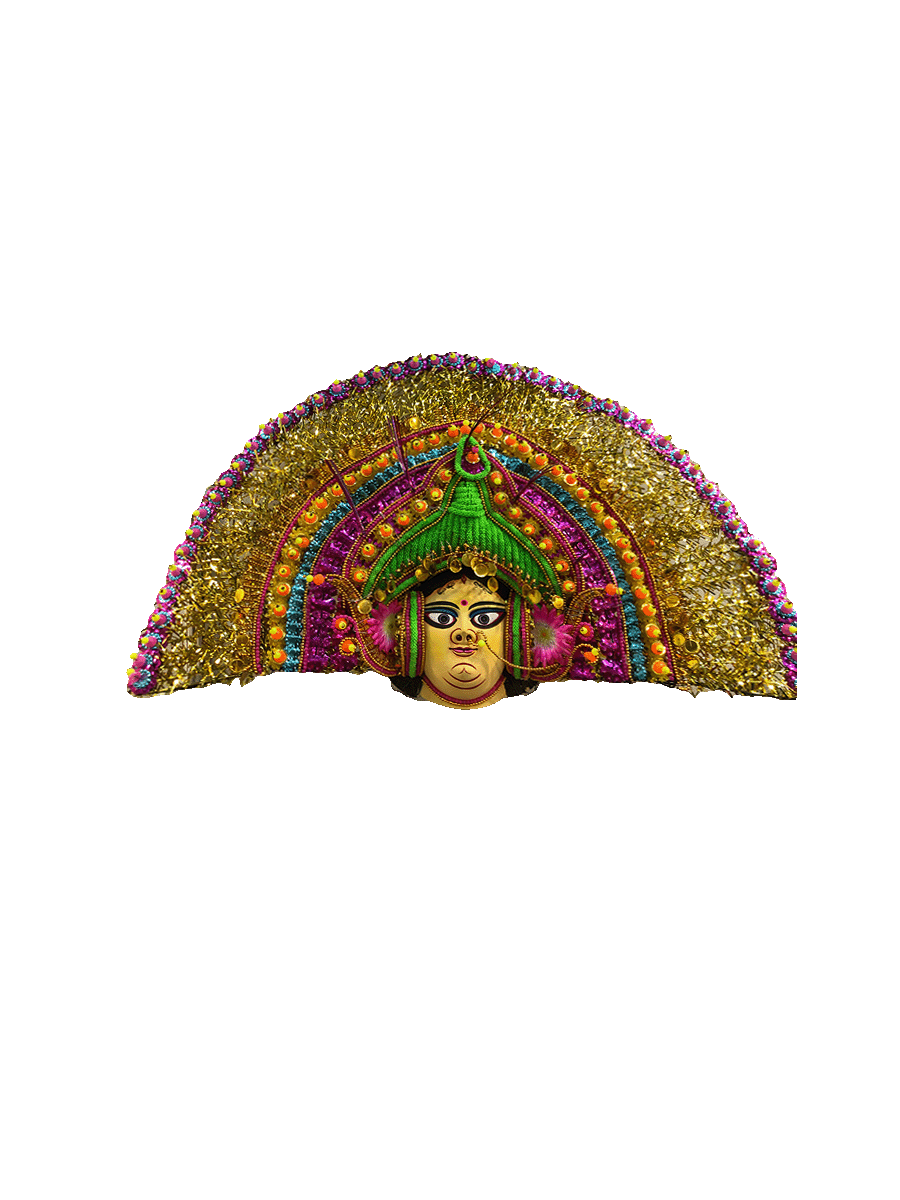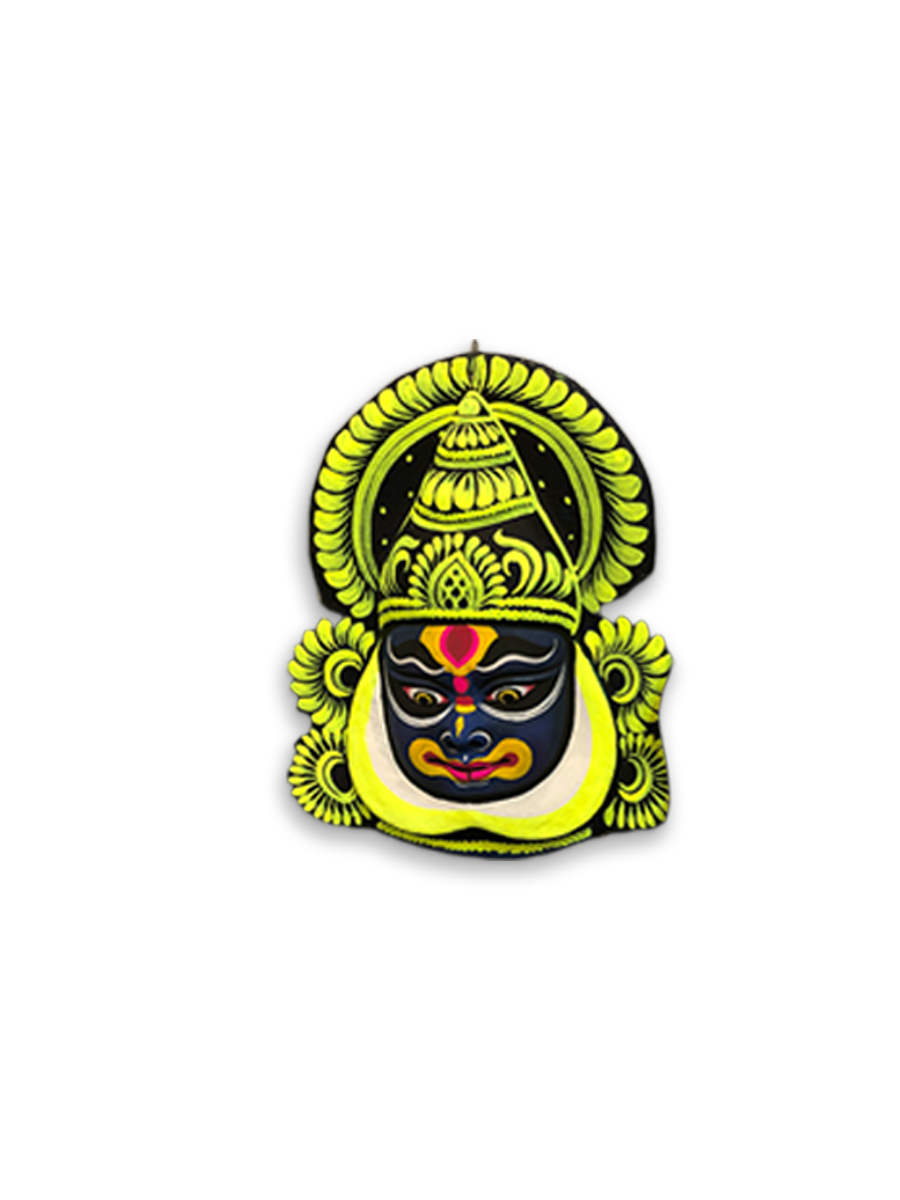Estimated Delivery in 2-3 weeks
Includes 1-2 weeks for hand-painting
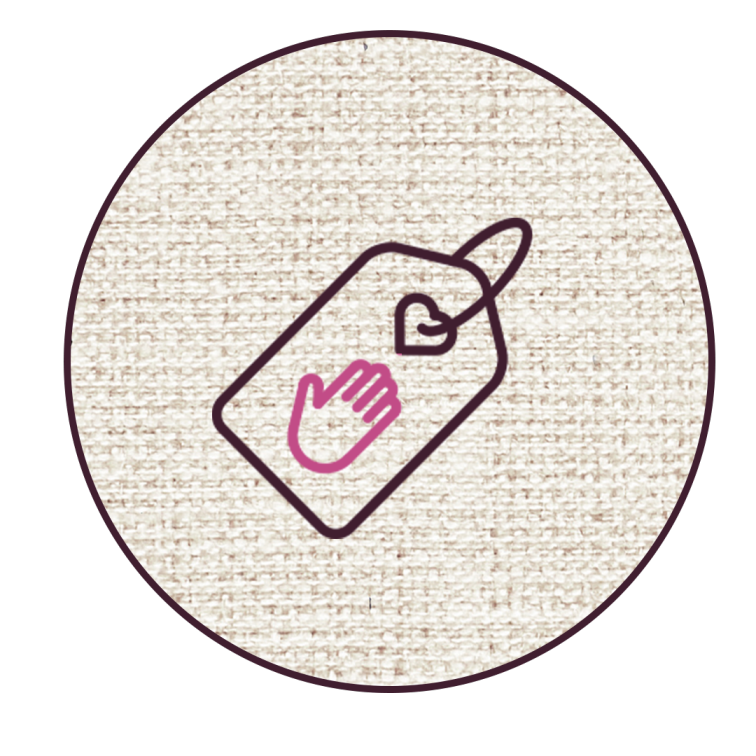
- AUTHENTIC
HANDMADE
ARTWORKS
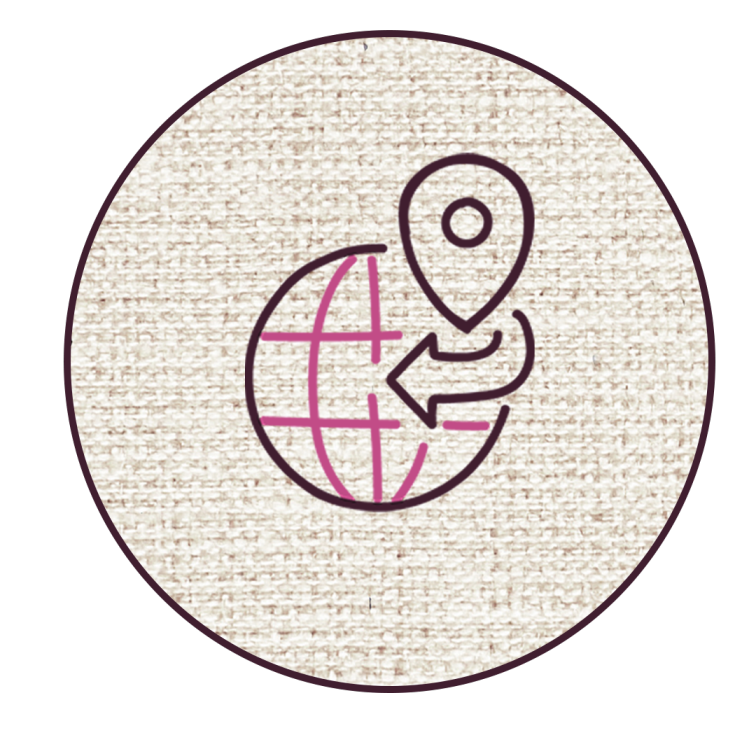
- INTERNATIONAL
SHIPPING

- CERTIFICATE OF
AUTHENTICITY
View

- SECURE
CHECKOUT
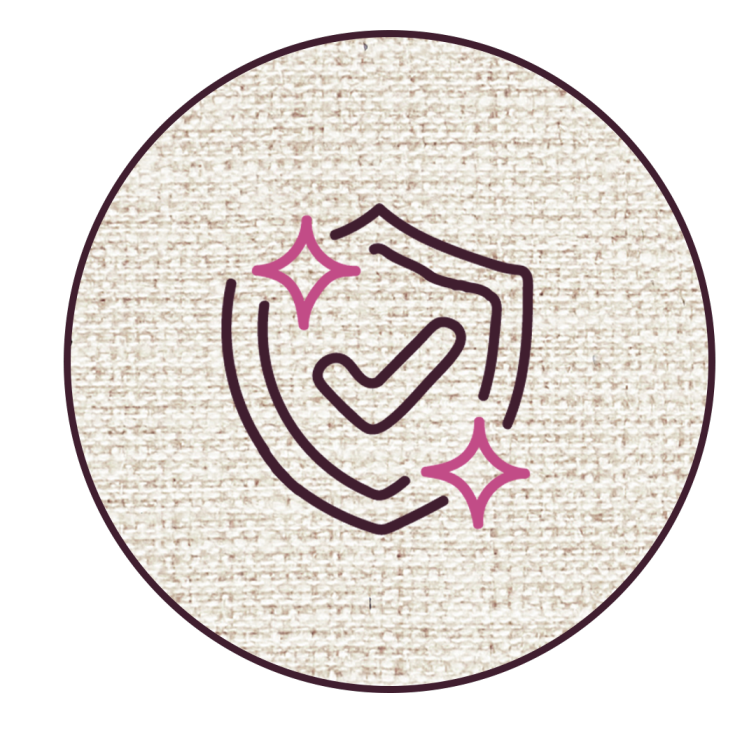
- WARRANTY
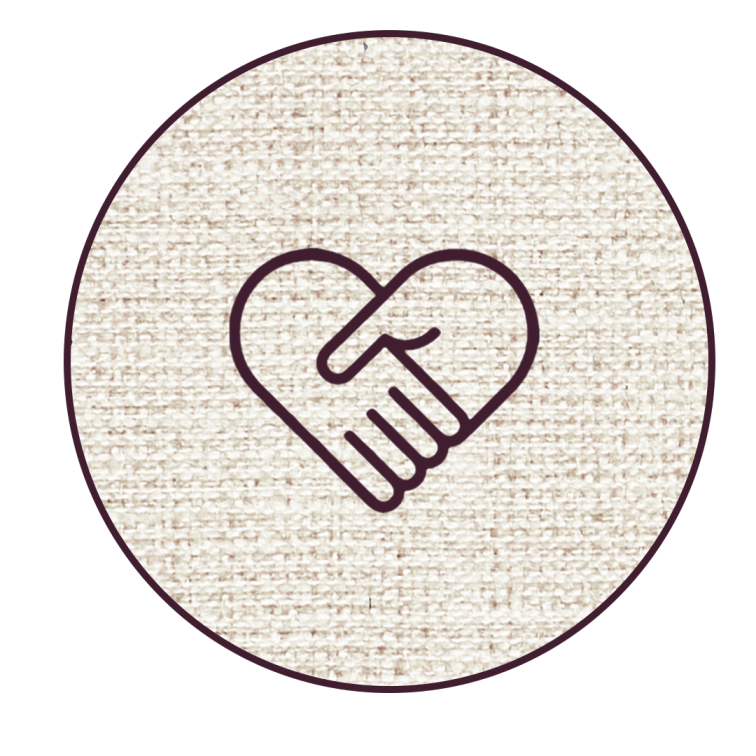
- ARTISANS
FIRST
PRICING
![]() Earn upto 1,800 Points on purchase of this product.
Earn upto 1,800 Points on purchase of this product.
![]() Get upto 10% OFF on Live Workshops when sign up for 2 or more workshops.
Get upto 10% OFF on Live Workshops when sign up for 2 or more workshops.
![]() Get 10% OFF coupon code for Art Kits signing up for Masterclass or Live Workshop.
Get 10% OFF coupon code for Art Kits signing up for Masterclass or Live Workshop.
About the Artwork +
Refined artisan Dharmendra Sutradhar's Chhau Mask, "Devi Durga" embodies the rich tradition of Chhau, a centuries-old East Indian dance form characterized by vibrant masks and intricate storytelling. With a palette of vivid hues, this mask comes to life, paying homage to the powerful Goddess Durga. The ornate patterns and motifs adorning the mask tell an epic tale of good prevailing over evil, celebrating the divine feminine energy. The intense colors symbolize courage and determination, while the mask's fierce expression encapsulates the warrior spirit of Devi Durga. Sutradhar's creation captures the essence of this timeless art form, preserving a piece of East Indian culture.
Authentication and Certification +
Each of our artworks are hand painted by master artists across India. We provide a digital authentication certificate with this artwork signed by the artist which will be sent over email after 3-4 days of delivery of the artwork.
View Sample Here
Sizes, Framing and Customisation +
The sizes mentioned are excluding the borders of the artwork. Frames shown are for visual representation only and are not included with the artwork.
Customisation
Most artworks can be customised in terms of colours, size and elements to fit your requirements.
For custom artwork orders, please use the WhatsApp chat below or email us at wecare@memeraki.com to discuss your requirements in more detail.
Framing Services
We offer framing services on demand at additional framing and shipping costs. If you wish to get your artwork framed, please reach out to us on WhatsApp or email.
Shipping and Taxes +
We ship worldwide.
Domestic Orders
All prices are inclusive of GST and applicable Indian taxes.
- We offer free shipping on orders above ₹1999 for all artworks, except Lippan, Terracotta and Thikri.
- A flat shipping rate of ₹499 applies to orders below ₹1999.
Lippan, Terracotta and Thikri
Shipping is charged on a per-kilogram basis, due to the delicate and bulky nature of these items.
International Orders
- A flat shipping charge of ₹4,000 applies to international artwork orders.
- Customs duties, taxes, or import charges in the buyer’s country are not included and must be borne by the buyer.
- Shipping rates for Lippan, Terracotta and Thikri artworks will be calculated based on weight.
Additonal Shipping Charges
Extra charges may be applicable for both domestic and international deliveries in the following cases:
- If the article requires additional packaging (such as a wooden crate) to ensure safe shipping due to its delicate nature.
- Custom-framed artworks.
- Artworks where shorter side exceeds 36 inches or Decor items with any side over 35 inches.
- If you request express shipping. Contact support to check availability.
- The order contains more than two different product types.
You can proceed with your purchase, and our team will contact you to confirm any applicable additional shipping charges before processing your order. Alternatively, reach out to us on WhatsApp or email, and we'll assist you in completing your purchase with the final pricing.
Delivery Timelines and Returns +
All artworks are handmade and couriered securely packed in a tube.
Ready To Ship/ In Stock artworks are shipped in under 2 weeks. We only accept return requests for Ready to Ship/ In stock artworks placed within a week from date of delivery. However, no returns can be accepted for international deliveries.
Once your order is placed, our team stays in constant communication with the artist to track the progress and ensure the quality of your order. You will receive regular updates from us throughout this process.
All MeMeraki artworks are hand-painted. In rare occasions, artist may face delays due to weather, health, prior commitments or force majeure. Our team will reach out to you with revised timelines in case of such delays. We appreciate your understanding and patience in such situations.
Colour Disclaimer+
All artworks on the website are hand painted from scratch by our master artists. This makes every artwork absolutely unique and the actual colour and overall artwork may vary slightly from the artwork image posted here.




 Share
Share



